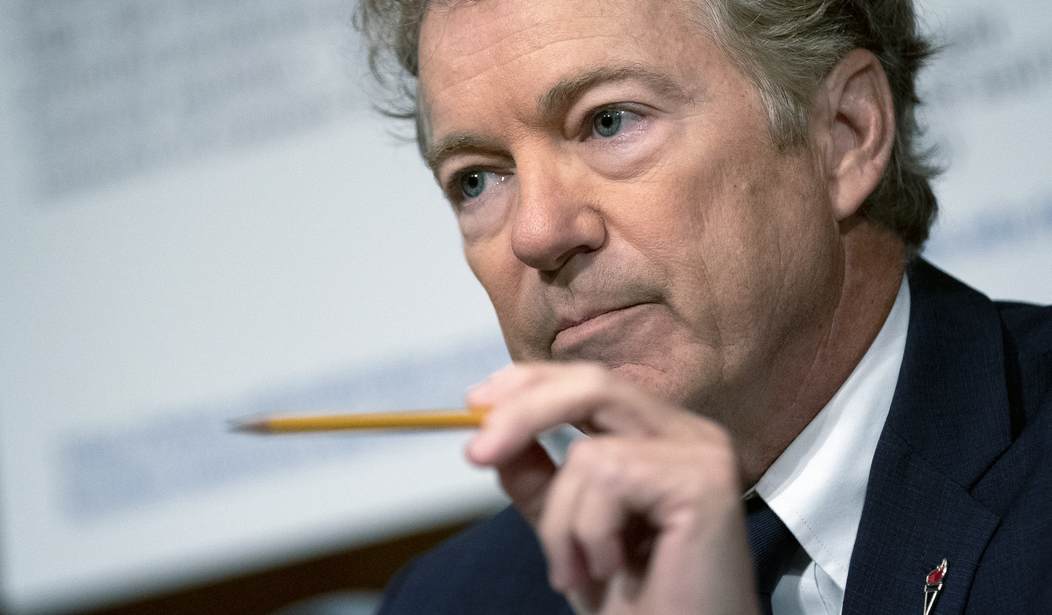At a time when prescription drug prices are approaching all-time highs, members of Congress seem hellbent on giving Big Pharma even more power to raise prices. Thank heavens conservative Republicans are working overtime to stop them.
Bought and paid for members of Congress are working hard on moving a bill called the PBM Transparency Act. That’s a problem because the government, insurance companies, unions, and other health plan sponsors pay PBMs to negotiate with (and get better drug deals from) Big Pharma for their beneficiaries. Since most PBMs manage a significant percentage of America's healthcare plans, they hold a lot of cards (and money) and thus have sizable leverage in the drug price negotiation process. That's bad for Big Pharma. So it shouldn’t surprise anyone that the major drug companies are trying to destroy their credibility and regulate them into afterthought, which is precisely what the PBM Transparency Act would do.
This crony bill recently received a congressional committee's approval, but not before Sen. Rand Paul (R-KY) voiced his objection due to small businesses’ opposition to it. In a separate hearing months earlier, Sen. Ted Cruz (R-TX), the Ranking Member of the Senate Commerce Committee, echoed Sen. Paul’s concerns. He said that the FTC "previously conducted robust economic analysis of PBMs and found that PBMs benefit consumers by lowering drug prices.” He also noted that the committee found “disclosure regulations similar to those in [the PBM Transparency Act] could increase prices on consumers’ drug and health plans.”
Recommended
Paul and Cruz’s concerns are valid ones. Why, then, are members supporting this bad bill?
Well, as aforementioned, some are doing it for the campaign support.
In the new book, American Cartel, co-authors Scott Higham and Sari Horwitz (both of which are Washington Post reporters) demonstrate how the pharmaceutical industry operates like a cartel, with drug wholesalers squarely in the middle of the chain. According to their book, this cartel’s players share lawyers and lobbyists, allowing them to collaborate on legislation that helps the entire industry remain as unfair and corrupt as it is today.
In Higham’s words, "Most people think it's the political parties that run the show or it's the White House that runs the show, but it really is the companies that run the show.” Indeed. And while some members act to protect these companies because of the handsome campaign contributions they receive from the cartel’s members, others do it because they’re being misled by organizations they mistakenly perceive as having consumers’ interests at heart.
For example, the National Community Pharmacists Association has endorsed the PBM Transparency Act. Many members of Congress believe this group is an impartial actor. Unfortunately, that’s the furthest thing from the truth; it appears to have plenty of financial incentives to support this bill.
According to the Washington Examiner, “some members of Congress may be tempted to support the bill after viewing this endorsement from the NCPA, the so-called ‘voice for independent pharmacies’,” but in reality, the association, which receives regular donations from the drug wholesalers, “appears to be nothing more than the mouthpiece for pharmaceutical companies.” Its endorsement “should cause members to run, not walk, away from this legislative effort.”
The sheer power these companies wield is overwhelming, but it is not insurmountable. Change can take place in this regard if the most principled members of Congress work together.
Thankfully, for our sake, the Freedom Caucus and its allied members in the Senate — including Sens. Cruz and Paul, who have already voiced their opposition to this bill — have a lot of clout in this political environment.
Aside from the principles of fairness, free markets, and accountability, the Freedom Caucus isn’t beholden to anyone or anything. And at a time when the balance of power is nearly evenly divided in Washington, it boasts over 45 members, which may very well be enough to kill this bill when it comes up for a full roll call vote.
Time will tell if Reps. Marjorie Taylor Greene (R-GA), Jim Jordan (R-OH), Lauren Boebert (R-CO), and the rest will follow Sens. Cruz and Paul’s lead on this issue but here’s hoping so. Today, more than ever, we need our most trusted lawmakers to step up to embody the leadership they promised when they took their oaths of office. They must act decisively, leaving no stone unturned in their pursuit of justice and their mission to rectify inequities in our drug market. The fate of the drug pricing accountability movement is counting on it.
Phillips is the founder of Tea Party Nation

























Join the conversation as a VIP Member